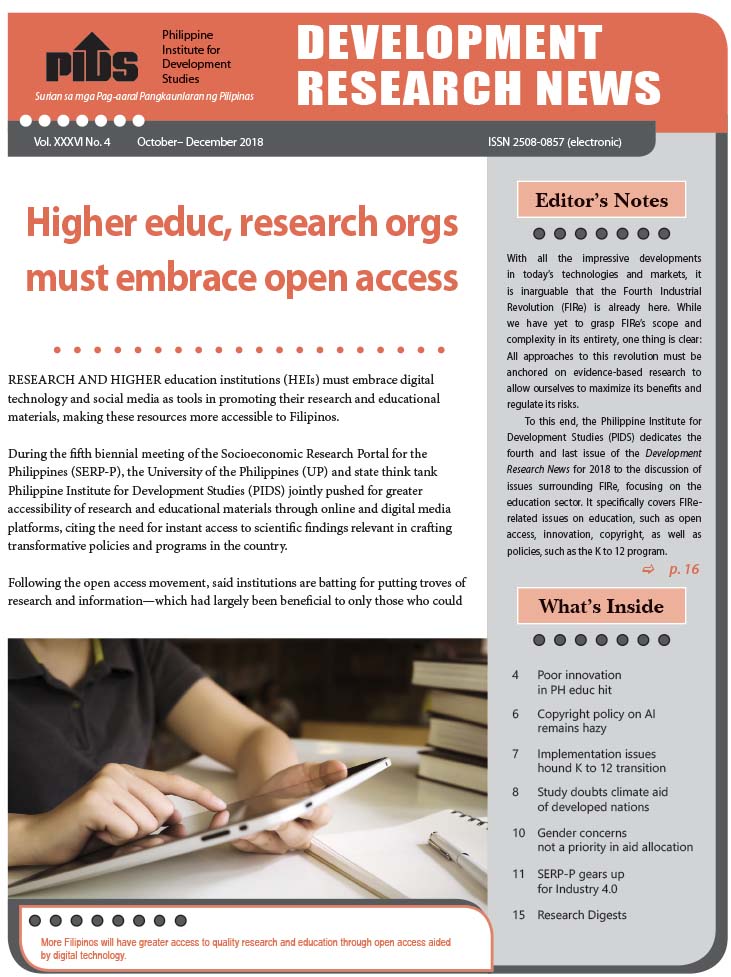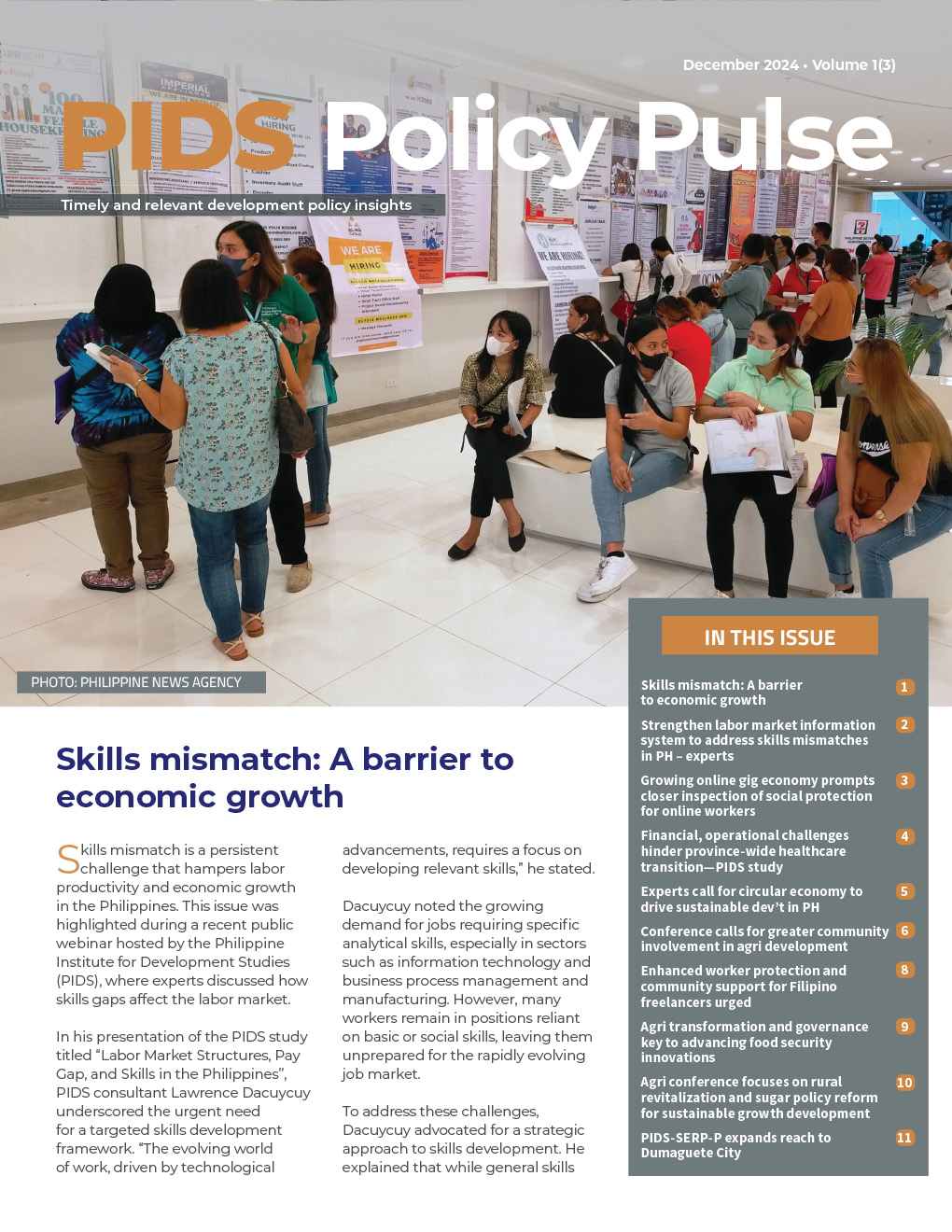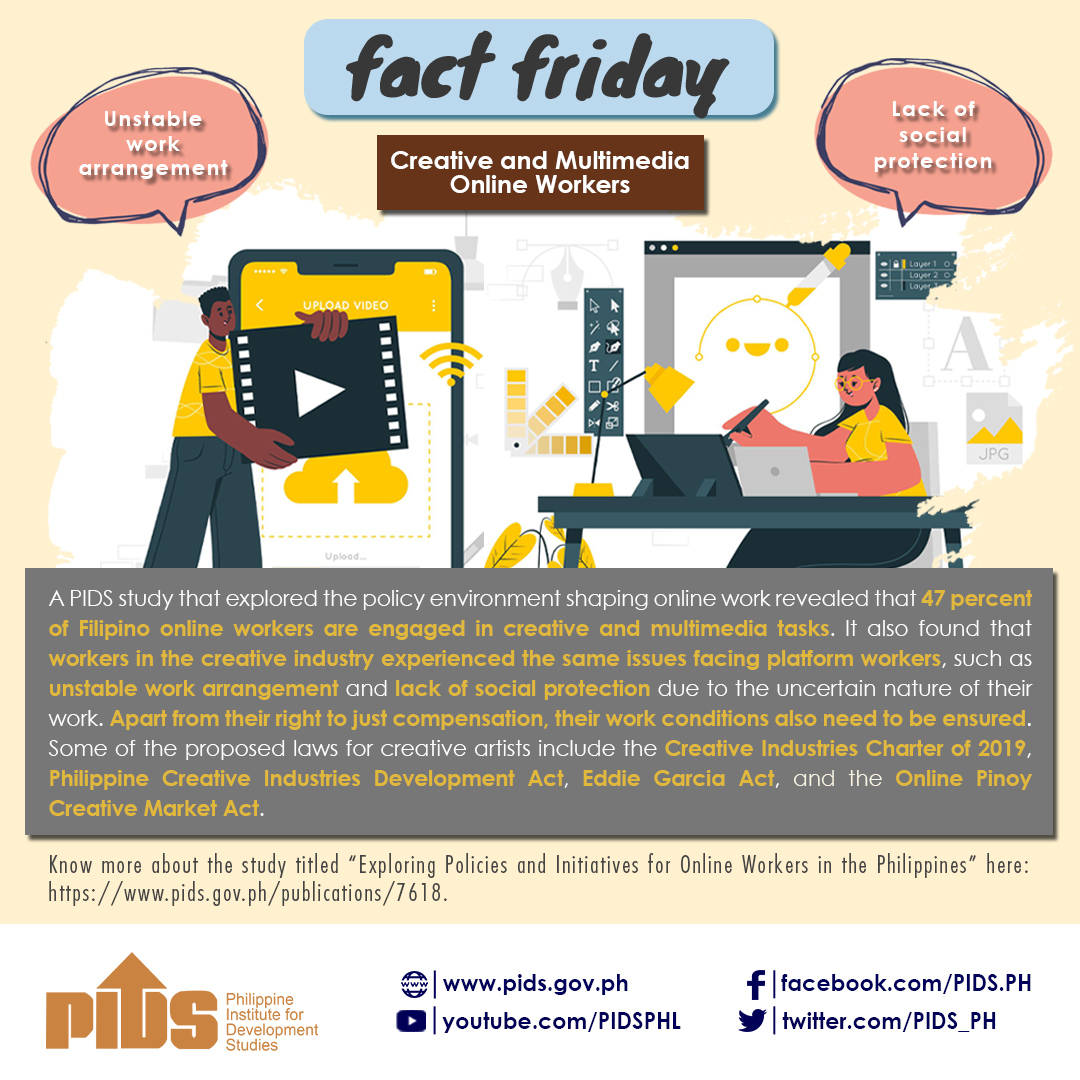
The online gig economy maintained its upward momentum since its boom, particularly in the wake of the COVID-19 pandemic. More and more Filipinos are turning to informal online work for a living, but the lack of regulations leaves workers and companies in the gig economy vulnerable.
Freelancers, online workers, and their virtual work environment were the focus of the recent knowledge sharing forum organized by the Socioeconomic Research Portal for the Philippines (SERP-P), an initiative of the Philippine Institute for Development Studies (PIDS). A key study, “Exploring Policies and Initiatives for Online Workers in the Philippines” was presented PIDS Research Specialist Queen Cel Oren, highlighting the challenges online workers face.
Oren noted that in 2019 to 2020 alone, freelance earnings in the Philippines rose by 208 percent. The massive shift to virtual work during and after the COVID-19 pandemic only boosted this upward trajectory for remote work. However, Filipino workers face growing competition from countries with better internet infrastructure. Despite lucrative opportunities in this growing online economy, gaps in local policies and infrastructure are evident.
Online workers are also susceptible to risk and exploitation, employment insecurity, discrimination, and social isolation, among others, Oren stated.
She explained that freelancers generally enjoy flexible work, but the lack of standardized compensation and social protections leaves them vulnerable to overwork and low wages. “The challenge for the government is how to ensure that online work adheres to decent work principles or ideals,” Oren said.
Oren emphasized that ensuring decent work, as defined in the Sustainable Development Goals, would require fair income, workplace security, and social integration for online workers. However, she noted a significant gap in coverage. Out of all the employment descriptors used to indicate online workers (freelancer, independent contractor, part-time worker, etc.), only those who are considered self-employed, an employee, or an entrepreneur are covered by PAG-IBIG, SSS, and PhilHealth. To address this, she suggested reclassifying online workers under the proprietor and compensation earner categories.
While Oren acknowledged that some legal and institutional foundations for social protection of online workers are in place, but are insufficient. She called for necessary adjustments to social protection and taxation systems to ensure they effectively cover flexible work arrangements, thereby safeguarding the rights and well-being of online workers.
Oren also suggested a more inclusive and aggressive pursuit of Internet connectivity, paired with skills training for online work, to empower marginalized sectors to participate in the growing online economy. She also emphasized that basic labor rights, including gender equality, should be extended to online workers.
The gig economy is host to a plethora of opportunities, be they old jobs migrated onto digital platforms or new projects that arose from technological developments. However, this diversity also presents unique challenges that must be addressed.
“The different types of workers and forms of online work imply that a one-size-fits-all policy may not be able to capture and address the various issues that online workers face,” Oren concluded, emphasizing the need for nuanced policies to support a competitive and secure online Filipino workforce.
Watch the recording of the knowledge-sharing forum at https://bit.ly/pidslive102824.###













